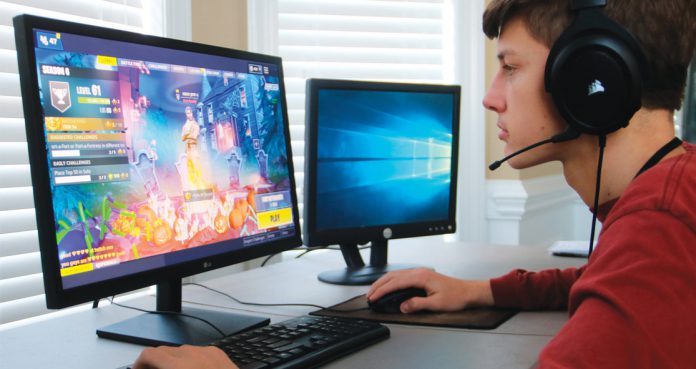A new survey has found that nearly 90 percent of parents believe their teens spend excessive time in video gaming. However, the survey suggests that most parents could have mistaken the extent of their teen’s video gaming habits.
Researchers from the University of Michigan said the C.S. Mott Children’s Hospital National Poll discovered that parents believe boys play more video games than girls do. The survey also suggested that parents believe that their teenage sons play video games daily. Also, they are more likely to play for more than three hours a day.
Parents also believe that video gaming often gets in the way of other important aspects of their child’s life, such as sleep, homework, family activities, social interactions, friendship with non-gamers, and extracurricular activities.
Co-director of Mott Children’s Hospital and pediatrician Dr. Gary Freed said, “Although many parents believe video games can be good for teens, they also report a number of negative impacts of prolonged gaming.”
“Parents should take a close look at their teen’s gaming behavior and set reasonable limits to reduce harmful impacts on sleep, family and peer relationships and school performance.”
“Still, with appropriate boundaries and supervision, video games may be a fun way for some children to enjoy time with each other and for parents to connect with their kids,” said Developmental Behavioral Pediatrician and Researcher at Mott Dr. Jenny Radesky.
“But prolonged gaming has the potential to interfere with other elements of a teen’s life, such as sleep, family and peer relationships and school performance,” added Dr. Radesky.
To address this issue and avoid pitfalls, Dr. Radesky recommended parents a few ways on how to help their teens play video games in a healthy way.
She advised setting limits. She said, “The American Academy of Pediatrics recommends no more than two hours per day of screen-based entertainment. Parents should create a ‘media plan’ that dictates what hours a child can enjoy video games without affecting behavior and homework.”
Dr. Radesky said, “It’s especially important to set clear expectations and limits about gaming during after school hours, so that time for schoolwork, friends, chores or conversation “don’t get elbowed out when the child’s preferred activity is video games.”
The developmental behavioral pediatrician advised monitoring teenagers by keeping tabs on what they are playing. She said, “I often advise parents to find non-violent alternatives to their favorite games.”
“You say, ‘If you’re going to game, I want to see what you’re doing, and I want to have fun with you and talk about what you’re seeing in these games so you can understand and process it,’” said Dr. Radesky.
She also recommended parents to look for any kind of trouble while playing video games and play together if possible. In addition, she suggested offering alternatives to teenagers by encouraging them to indulge in outdoor activities.























